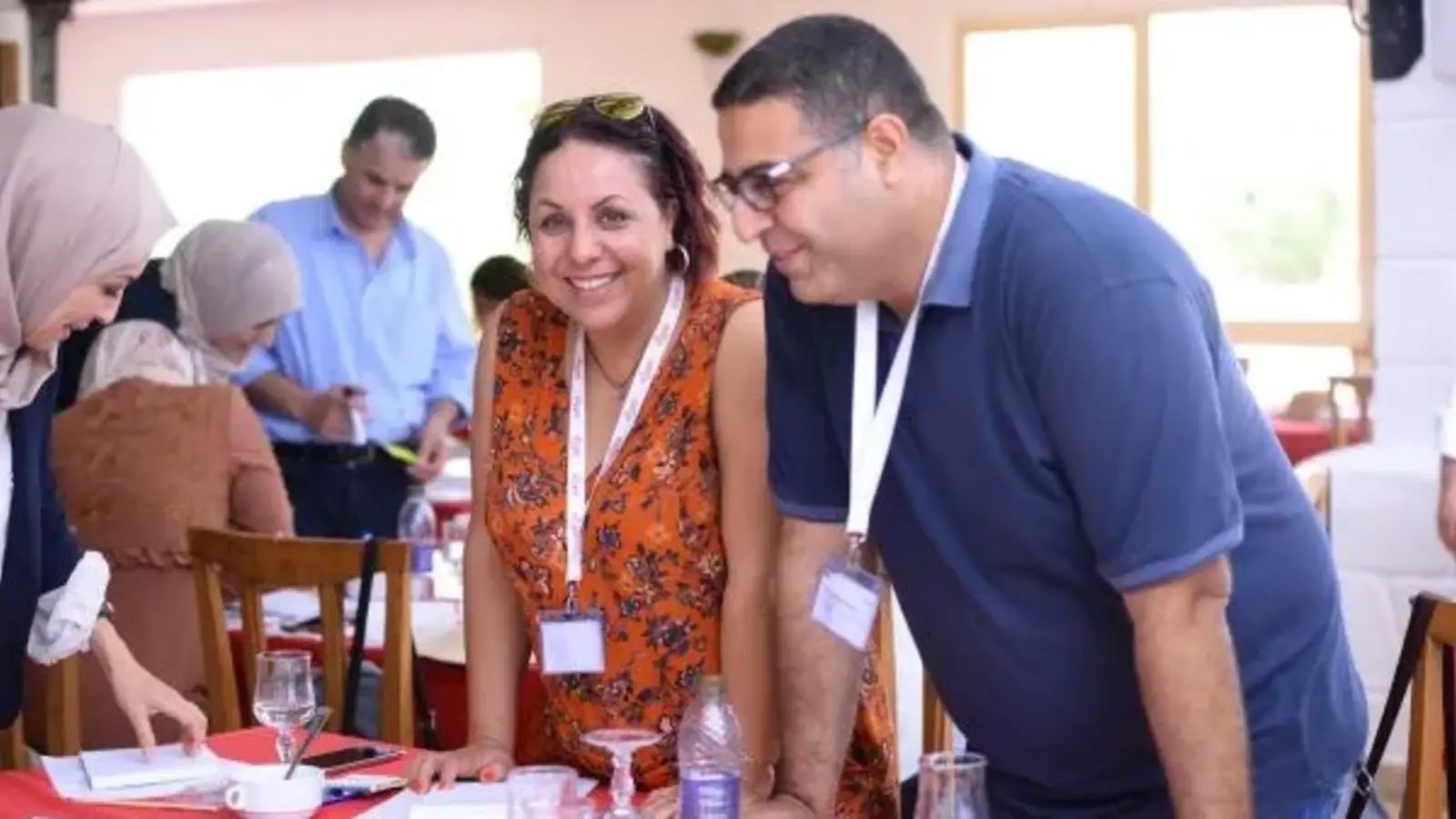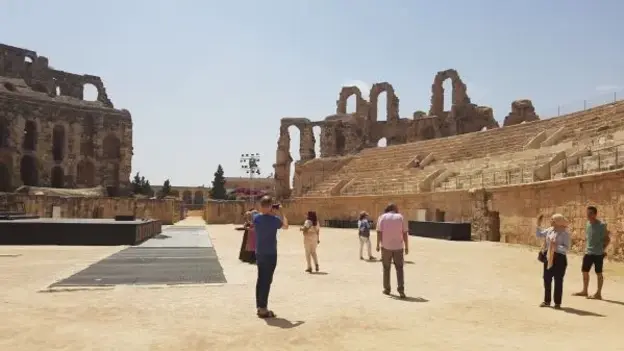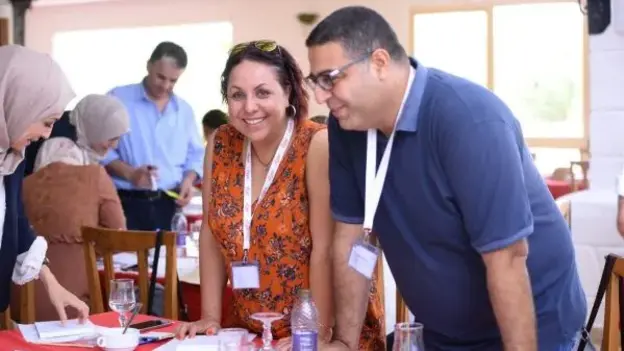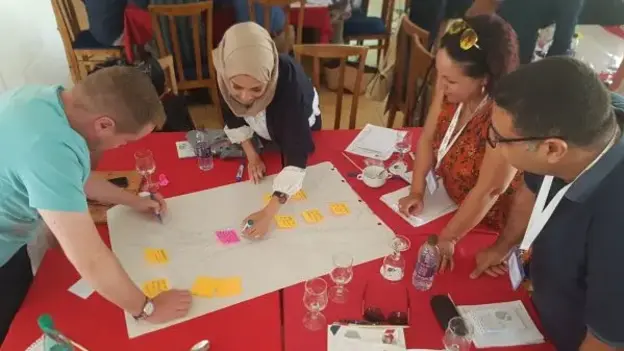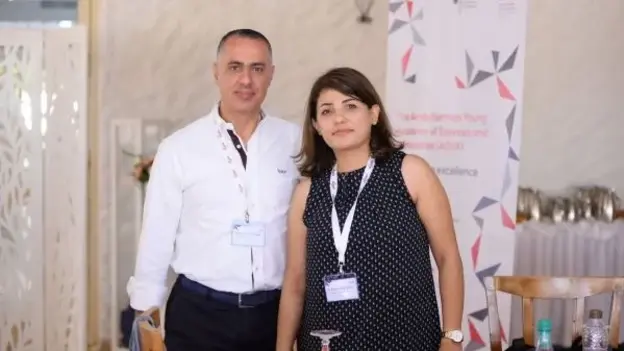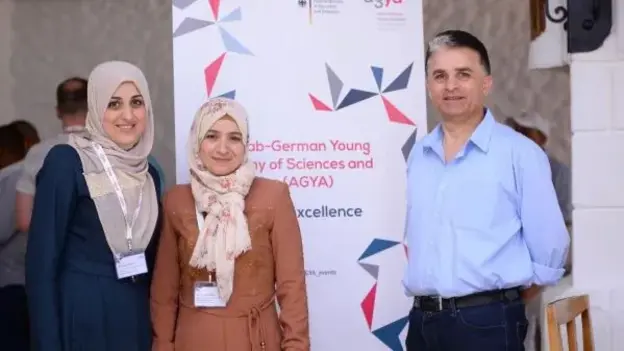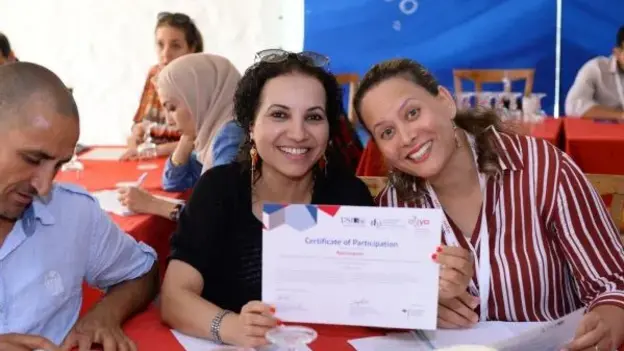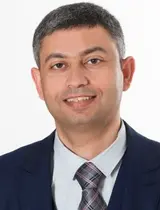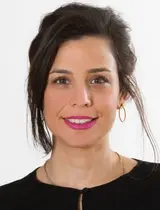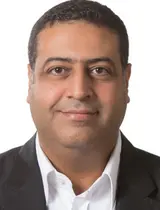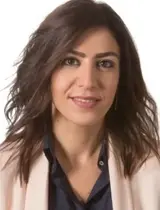Working Group Meeting
A Journey Towards Active Methods in Higher Education
Workshop
Education has become part of the international market economy - schools and universities compete worldwide. Therefore, education institutions are rewarding innovative initiatives that aim at enhancing student learning and employability. Emerging technologies and new demands of the labour market have presented multiple challenges. How can higher education pedagogy be adapted in order to address these challenges and improve employment rates for graduates? What can professors and educators do to better help students develop transferable skills to improve their education-to-work transition and make them more flexible in their career paths? ‘University professors often think that when they explain concepts and transmit knowledge, students will learn’, explains Professor Fadi El Hage, Delegate of the Rector for the Professional Training Center (CFP) of the University Saint-Joseph in Beirut. In his view this is a misleading conception of university lectures. ‘If you want the students to develop skills and if you want them to solve problems themselves, you have to shift from passive to active methods of teaching’.
The use of ‘active methods’ through peer-learning, problem solving and interdisciplinary project based learning promotes the involvement of students, develops their critical and creative thinking, and contributes to the development of 21-century skills. This includes a change in the professor’s mentality with regards to their course design. The AGYA training workshop on innovative active methods in higher education in Djerba, Tunisia from 05 – 08 July 2019 was designed to improve teaching skills of AGYA members and fellow scholars from Tunisia, Germany, Palestine, Morocco, Kuwait, the United Arab Emirates and Jordan. The AGYA Working Group Arab and German Education invited the highly experienced trainers Professor Fadi El Hage and his colleague Dr. Taghrid Diab.
Training sessions combined with cultural insights
Learning on the road: the training already began during the bus ride from Tunis to Djerba with a stop in the city of Kairouan. Founded in 670, the city flourished under the Aghlabid dynasty in the 9th century. Despite the transfer of the political capital to Tunis in the 12th century, Kairouan remained the Maghreb's principal holy city. The city today is a UNESCO World Heritage site. In this cultural setting, the workshop participants explored the Minutes Paper Technique, a quick classroom assessment technique which is very commonly used because of its ease of use, flexibility and its minimal resources-requirements. In the upcoming two workshop days, other techniques such as MIG, POGIL and Peer learning were introduced and set into practise. The objective of the MIG methodology (‘Mediated Interaction Groups’) is to enhance student learning through the agency of mediation processes that operate in a group discussion that is strongly guided. POGIL stands for Process Oriented Guided Inquiry Learning. In a typical POGIL classroom or laboratory, students work in small teams with the teacher acting as a facilitator. The student teams use specially designed activities that generally follow a learning cycle paradigm.The overarching idea of the training workshop was ‘learning by doing’. In small groups, the participants ‘lived’ the different teaching methods and learned them by directly applying them. They for example tried out the Minutes Paper Technique on the spot during the training session in Kairouan.
A workshop is not a one-way road
The training workshop was enriched by the participants bringing in theirs skills and knowledge. For example, AGYA member Dr. Henda Mahmoudi brought in her expertise on agriculture and plant physiology. Dr. Raed Amro, Electrical Engineer from Palestine Polytechnic University shared his experience with 'Applying of Community Based Learning in Engineering Courses at Palestine Polytechnic University'.
The workshop was combined with cultural insights into the vivid history of Tunisia: after exploring Djerba, on their bus ride back to Tunis, the participants stopped in El Jem, home to one of the most impressive Roman remains in Africa, the world-famous 'Amphitheater of El Jem'. AGYA member Dr. Konstantin Klein, Historian and based at the University of Bamberg, Germany guided his colleagues through what was once the largest building in Roman Africa and explained in an interactive talk inter alia how one can differentiate between Roman and Greek theatre architecture.
Put active methods into practice
'We want to constantly enhance the motivation, transversal skills and knowledge retention of our students. We need to learn how to encourage our students to take an active part in the classroom in our role as lecturers. That´s why we organized this training workshop on active learning tools’, explains AGYA member Dr. Anis Ben Amor of the University of Tunis El Manar. His colleague Mohamed Abdelwaheb Yousfi adds: ‘I had heard of different active methods of teaching before, but this is the first time that I have learned how to put them into practice with my students and know how to apply them in the classroom’. Through interdisciplinary and cross-cultural collaboration, members of the Arab-German Young Academy of Sciences and Humanities (AGYA) have been tackling questions about the higher education sector in Tunisia in different projects. In May 2018, for instance, the AGYA Working Group Arab and German Education organized a three-day conference in Tunisia entitled 'Impact of Education on Employment: Cases from Germany and Arab Countries'. In October 2018, this project was presented as part of an AGYA-organized panel on ‘Science Education and Experimental Pedagogies’ within the Conference ‘Formation à l’Esprit Scientifique et Pédagogies Expérimentales d’Apprentissage’ (FESPE 2018)’ held at the Tunisian Academy of Sciences, Letters and Arts, Beit Al-Hikma. The idea of organizing a hands-on training workshop in Djerba to introduce active methods of teaching was developed during the conference as a continuous involvement of the AGYA Working Group with this topic as well as tackling it from theoretical as well as practical perspectives.
The training workshop was organized by the AGYA Working Group Arab and German Education with trainers from the Professional Training Center (CFP) of the University Saint-Joseph, Libanon.
A video about the journey towards active methods in higher education
The use of ‘active methods’ through peer-learning, problem solving and interdisciplinary project based learning promotes the involvement of students, develops their critical and creative thinking, and contributes to the development of 21-century skills. AGYA members and trainers talk about their experience with active methods. You can find the video below.
- Disciplines Involved
- Pedagogy, Biochemistry, Biology, Literature, Mathematics
- Venue
- Djerba, Tunisia
- Project Title
- A Journey Towards Active Methods in Higher Education
- Year
- 2019
- Funding Scheme
- Working Group Meeting
- Working Group
- Arab and German Education
- Countries Involved
- Tunisia, Lebanon, Palestine, Germany
A Journey Towards Active Methods in Higher Education
